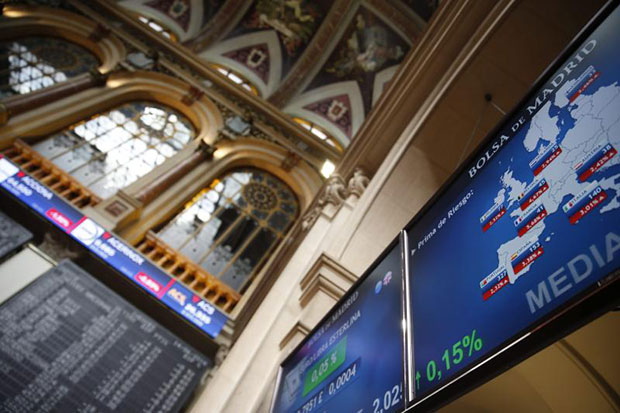
Stock markets extended a global sell-off Tuesday on rising prospects of Britain next week voting to leave the European Union.
Investors meanwhile started paying for the privilege of owning rock-solid German government bonds as fears of a possible Brexit and economic worries caused a rush to the safety of German debt.
Strong demand for German sovereign bonds, known as "Bunds", caused prices to peak, in turn pushing their yields into negative territory for the first time ever.
"The nervousness around the Brexit story increased the volatility in global bond markets," said Ipek Ozkardeskaya, market analyst at traders London Capital Group.
In a bid to seek safety, traders are piling also into the yen and gold, or alternative haven investments.
On Tuesday, the euro hit a 3.5-year low at 118.52 yen.
Caution across markets was reinforced also by policy meetings of the US, Japanese and British central banks taking place this week.
The Federal Reserve will conclude a two-day meeting Wednesday and while it is not expected to hike interest rates for several months, investors hope it will give some guidance on monetary policy.
Opinion is divided on whether the Bank of Japan will add to its stimulus when it finishes its own gathering Thursday, while the same day the Bank of England is widely expected to hold rates at 0.5%.
"Expectations of weak global growth and ever-enduring easy monetary policy, likely to be reinforced at central bank meetings this week, is seeing a mass exit from equities and feeding demand for bonds, sending yields to record lows," said Jasper Lawler, analyst at traders CMC Markets.
Around 1030 GMT in stock market trades, London's benchmark FTSE 100 index was down 1.3% compared with Monday's close.
In the eurozone, Frankfurt's DAX 30 lost 0.7% and the Paris CAC 40 slid 1.4%.
In Southeast Asia, stocks were cautious as investors played safe.
Index provider MSCI's decision on whether to allow domestic Chinese shares into its emerging markets index also dampened sentiment.
"MSCI's inclusion of China's A shares can also push the markets further sideways or it could have a short-term negative effect," Aller said.
"Even though inclusion will only take effect next year, it will reduce the weightage of other countries and have a greater impact on larger markets."
A decision to allow yuan-denominated shares - or A shares - into its widely used Emerging Markets Index, could draw $400 billion into Chinese shares in the next decade, MSCI estimates show.
The Philippine index closed down 1.25% on profit taking. Consumer cyclicals and utilities were the biggest drag on the index.
Singapore ended 0.6% weaker, its fourth consecutive day of losses as oil and gas stocks led the index lower on falling global oil prices.
Vietnam and Indonesia closed 0.3% higher, while Malaysia ended 0.2% lower.